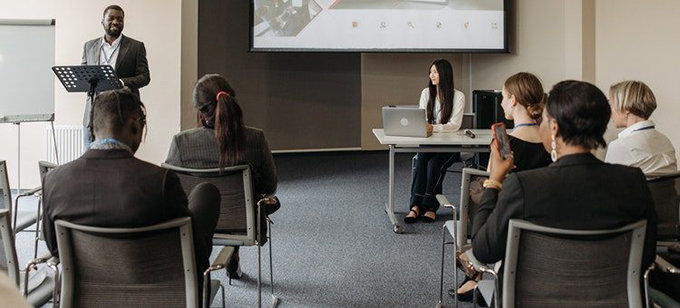
I was recently reviewing a paper and saw my own work cited. Very nice, you might think. However, I was cited for saying a thing that I didn’t say – a thing that I would never ever say. It was a thing that I have railed against in almost everything I’ve written on the topic.
Now I know that meanings are not fixed. People interpret. And that’s generally good and we writers like to make people think their own thoughts. But we also like our readers to get what we are saying and not be 100% inaccurate.
100% wrong, attributing the opposite of what is actually said is, in my books, mal- attribution not mis – attribution. It’s a bit more than mis. Even if it’s unintended, a mal-attribution has ongoing negative effects, as the text is read by others and taken and used as fact.
It’s par for the course I know. But hey ho, on this occasion I decided to have a little moan to my facebook friends. I knew they would be sympathetic and I was pretty sure most of them had had exactly the same experience. And sure enough they had. But two of them had something more to say.
The first facebook friend had a little story. I won’t reveal their identity, just know I’m repeating their story with permission. My friend said,
“ I was once challenged in a PhD viva when I told the candidate that I hadn’t written anything on a certain topic which they had claimed I had. They told me that I didn’t know what I was talking about. It’s some years ago but I am still sort of reeling from it.”
Gobsmacking eh for someone to tell their examiner that they knew better about what they had done. In a viva!
Of course there’s two ways to read this story. The first is that the candidate was really stupid or arrogant. The second, kinder explanation is that the candidate was in defensive defence mode and just blurted out the first thing that came to mind to justify their literatures work. If that was the case, I imagine they spent most the next night replaying the scene over and over and thinking of all of the several thousand alternative things they might have said.
The second facebook friend referred me to a 2010 paper I had forgotten about, Varieties of Ignorance by Andrew Abbott (here, paywalled). Abbott was interested in how to understand and explain ignorance in scholarly work. So he decided to examine how one of his own books had been used and cited. He looked at both Wikipedia and the scholarly literature.
Well, no prizes for guessing that the Wikipedia entry writer had entirely missed the mark, according to Abbott. The writer had used the old and largely debunked approach that Abbott not only critiqued but also reframed. This is a much bigger example of the kind of citation, what I am calling mal-attribution, that had irritated me.
But when he got to the scholarly literatures, Abbott found that things were only marginally better. He found 105 articles which had cited his book in the year 2008. Of these, he judged that
- Only 27 actually needed to cite the book because they were building on it in some way. Of these a mere 13 used his work centrally in their arguments. The other 14 cited correctly, but the material was more peripheral to their argument.
- About another 20 got Abbott’s argument about right, but could have referenced anybody not him as the point cited was made by many people.
- Another 15 cited his work but trivially.
- 42 cited Abbott in a list of vastly varied texts and did not differentiate between any of them
- And 12 papers cited Abbott for something he didn’t say. Abbott concludes that these latter attributions were the result of either careless reading, using someone else’s summaries or just plain old guesswork.
Abbott weaves this data into an elegant explanation of ignorance which, at its heart, suggests that misattribution and malattribution are rather more commonplace in scholarly work than we might think.
And really, that’s not acceptable.
Getting your reading of other people’s work wrong is in part about the speed with which many of us have to write – we get careless about reading everything thoroughly and we don’t make time to double check that all of our citations are actually correct. And it may also be a side effect of the unwritten expectation that writers on given topics have to cite particular key books and people. Regardless of relevance to their particular argument.
A further possibility is that some writers weren’t careful enough about noting and summarising and there’s been slippage of some kind – those who take one position are lumped together with those who critique it. ( I suspect this may have happened in my particular case). And Abbott may well be right in pinpointing careless reading, poor use of summaries and lack of double checking.
If any or all of these reasons are true, I do wonder what can be done about the apparent prevalence of mal and misattribution – yes I know that one paper and a facebook conversation isn’t really enough to make a case. So alright, more research. And certainly more time on referencing and the ethics of citation in methods and writing courses.
I guess I’d like to think that if everyone could imagine that the writers they cite and use are reading what they have written there might be a bit of a change – although that won’t necessarily change the behaviour of an exceptional and very nervous viva participant.
But I’d also like to think that at some point soon we could all slow down a bit, read and note slowly, read the originals and not rely on summaries …
